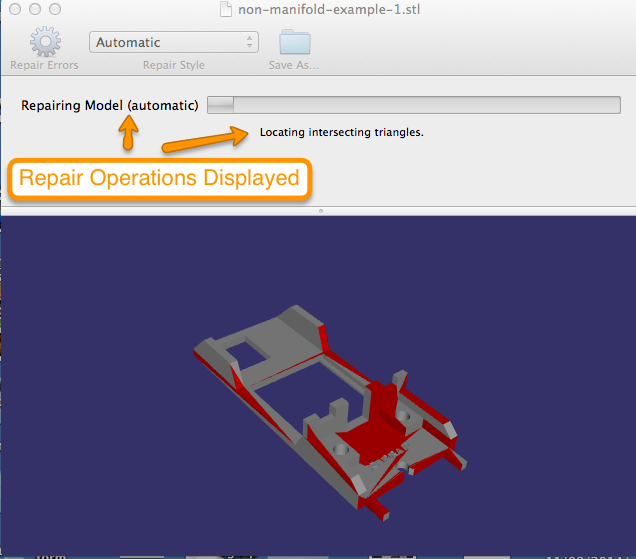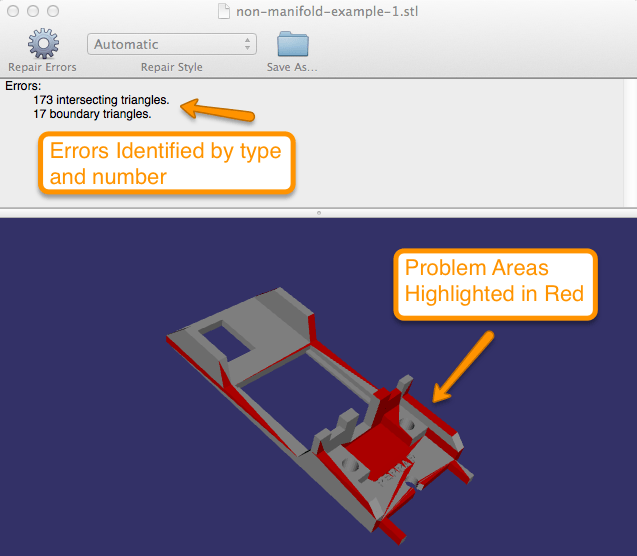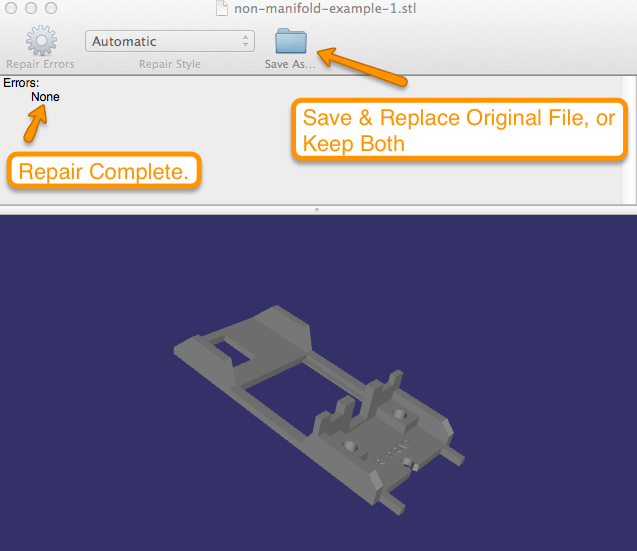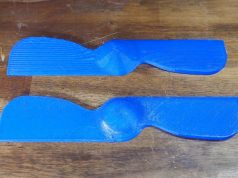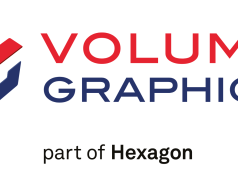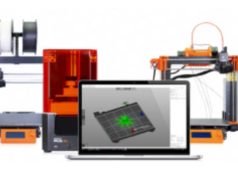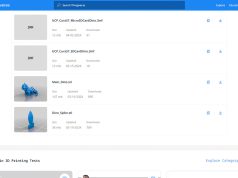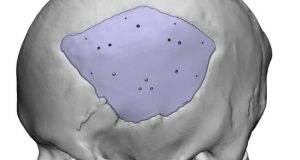Avante Technology has announced a new software to provide users an automatic method of validation for their STL files prior to 3D printing.
December 5, 2014: 3D printing enthusiasts are probably all well aware of the common problem. 3D models generated by 3D scanners or CAD applications may have inconsistencies in the surfaces or other errors that could result in difficulty printing the designed object.
Emendo highlights the location and type of errors found in a 3D view of the file. This also provides feedback for the user on how to better design CAD files in future. The locations to be repaired are displayed in a dialog box and represented to the user with the option to repair the file. The simples 3-step process is described as the following:
1. Open Emendo. Double click on the file and Emendo automatically analyzes your file for errors. Within seconds, Emendo displays the number and type of any errors found and highlights them on a 3D rendering of the file.
2. Click Repair. Emendo automaticlly repairs any errors.
3. Save Your File. Select to save the repaired file under the original file name, or select a new name to save both the original and repaired versions.
The software runs on Mac OS version 10.9 and higher and can be purchased for $79.95. A Windows version is planned for the first half of 2015.
March 10, 2015: Update – Developer kit for web-based 3D print on demand services now available
Avante Technology announced version 1.0 of its Emendo automated STL file repair and validation SDK. Targeted for web based 3D print on demand services, the Emendo SDK pro-vides powerful file repair and validation that will save print-to-order services time and money lost to failed prints.
“Print-on-demand is growing in popularity” said Robert Zollo, President of Avante Technology. “The challenge for service providers is offering a consistent level of print quality while minimizing the number of failed or low quality prints. We developed the EmendoTM SDK in response to a growing number of re- quests from web based printing services to help them improve printing success”.
The SDK provides a simple, command line interface that allows easy integration with the web server. Developers are offered control over the type and level of precision of repair methods so they can fine tune the trade-offs between repair speed and precision to meet their specific requirements.
Two Modes of Operation
Developers will have the option to call two different repair modes that use different types of repair algorithms. There is also an option to set the repair precision to match the level of precision of the type of printer selected and the precision of the part.
Selectable Precision Levels
Developers may select from low, medium and high levels of precision. This saves a great deal of time when the printed object does not require fine resolution, or where the precision level of the selected 3D printer is relatively low.
Rapid Volume Estimation
The SDK has an optional print volume estimator that quickly provides the service provider with an indica- tor of the approximate amount of material the print job will require without having to run the file through a slicing engine. The developer can decide how to factor in the in-fill pattern selected and support material to automatically provide an estimate while the customer is on-line.
Systems Supported
Version 1.0 will be available in Ubuntu Linux and Mac OS.! The company will compile other OS versions upon request.
Pricing and Availability
Price for Emendo SDK v1.0 is $1,500. An annual software licensing and support agreement is required. The SDK will be available in March 2015.
July 22, 2015: Update – Emendo now available for Windows 7 & 8
Avante Technology released version 1.0 of its Emendo Automated STL File Repair software for MS Windows.
Designed to address the growing complexity of STL files created from various types of source applications, this “one button” application provides two completely different repair methods that can be combined to repair more complex files without the user needing to know anything about 3D mesh technology.
A growing number of users are combining 3D source material from multiple applications. These “hybrid” files often include errors resulting in the imperfect connecting of the various components.
Users have the option to use three different repair modes using different types and combinations of repair algorithms for a broader repair capability than what can be obtained from conventional repair software. These state-of-the-art algorithms are optimized to solve a variety of error scenarios that result from using a mix of source applications to create complex, hybrid 3D files.
Subscribe to our Newsletter
3DPResso is a weekly newsletter that links to the most exciting global stories from the 3D printing and additive manufacturing industry.




